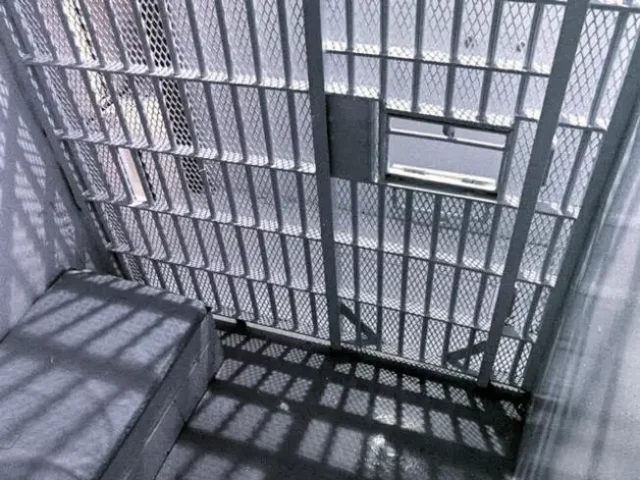In recent years, the issue of sexual abuse in schools has come to the forefront of public consciousness. The safety of students should always be a top priority for educators, but unfortunately, this is not always the case. Shockingly, 181 educators were arrested for sex crimes against students in the past year alone. This is a disturbing trend that must be addressed. In this article, we will take a closer look at this issue, its causes, and what can be done to prevent it from happening.
Introduction
Sexual abuse in schools is a serious problem that affects students all over the world. It can cause long-lasting emotional and psychological damage to the victims, as well as erode trust in the education system. Unfortunately, this problem is not new, but the recent statistics are alarming. According to recent data, 181 educators were arrested for sex crimes against students in the past year alone.
Understanding the Problem
Sexual abuse in schools can take many forms, including physical assault, verbal harassment, and emotional abuse. The perpetrators of these crimes are often people in positions of authority, such as teachers, coaches, and administrators. They use their power to manipulate and exploit their victims, often leaving them feeling confused, ashamed, and alone.
The Numbers
The statistics regarding sexual abuse in schools are alarming. According to recent data, 181 educators were arrested for sex crimes against students in the past year alone. This is a disturbing trend that must be addressed.
The Impact
The impact of sexual abuse in schools can be devastating for the victims. They may experience long-lasting emotional and psychological damage, including anxiety, depression, and post-traumatic stress disorder (PTSD). This can affect their ability to learn, form relationships, and trust others.
In 2022, there were reports of several cases in which teachers were arrested for sexual offenses involving students. It is essential to note that these cases are not representative of the teaching profession as a whole, and the vast majority of educators maintain professional boundaries and act ethically in their interactions with students.
News outlets like Fox News have reported on some of these cases, including cases in which teachers have been accused of having sexual relationships with students or possessing child pornography. These cases often involve investigations by law enforcement and can result in criminal charges and imprisonment for the offenders.
It’s important to remember that teacher-student sexual relationships are illegal and harmful, as they can cause significant emotional and psychological harm to the students involved. If you or someone you know has experienced any form of sexual harassment or abuse, it’s essential to seek support from trusted authorities and professionals.
Causes of Sexual Abuse in Schools

There is no single cause of sexual abuse in schools, but there are several factors that can contribute to the problem.
Power Imbalances
One of the main causes of sexual abuse in schools is power imbalances. Educators are often in a position of authority over their students, which can make it easier for them to manipulate and exploit their victims.
Lack of Oversight
Another factor that can contribute to sexual abuse in schools is a lack of oversight. In some cases, schools may not have adequate policies and procedures in place to prevent and respond to sexual abuse.
Social Stigma
Social stigma can also play a role in sexual abuse in schools. Victims may be afraid to come forward due to fear of retaliation or not being believed. This can make it easier for perpetrators to continue their abuse.

Preventing Sexual Abuse in Schools
Preventing sexual abuse in schools is crucial to ensuring the safety and well-being of students. There are several steps that can be taken to prevent and address sexual abuse in schools.
Education and Awareness
One of the most important steps in preventing sexual abuse in schools is education and awareness. Students, parents, and educators must be educated about the warning signs of sexual abuse and how to report it.
Strong Policies and Procedures
Schools must have strong policies and procedures in place to prevent and respond to sexual abuse. This includes clear reporting mechanisms, training for educators and staff, and a commitment to taking all reports of sexual abuse seriously.
Support for Victims
Victims of sexual abuse in schools must be provided with the support they need to heal and recover. This may include counseling services, medical care, and legal advocacy.
Conclusion
Sexual abuse in schools is a serious problem that affects students all over the world. The recent statistics regarding educators arrested for sex crimes against students are alarming and must be addressed. By educating students, parents, and educators, implementing strong policies and procedures, and providing support for victims, we can work towards preventing and addressing sexual abuse in schools. It is essential that we take this issue seriously and work towards creating safe and supportive learning environments for all students.
FAQs
What should I do if I suspect sexual abuse in my child’s school?
If you suspect sexual abuse in your child’s school, it is important to report it immediately to the appropriate authorities. This may include the school administration, law enforcement, or child protective services.
How can schools prevent sexual abuse?
Schools can prevent sexual abuse by implementing strong policies and procedures, providing education and awareness training, and providing support for victims.
What are the warning signs of sexual abuse?
The warning signs of sexual abuse may include changes in behavior, unexplained injuries, and emotional distress.
What should I do if my child has been sexually abused?
If your child has been sexually abused, it is important to seek immediate medical and legal assistance. You should also provide emotional support for your child and seek counseling services.
How can I talk to my child about sexual abuse?
It is important to talk to your child about sexual abuse in a sensitive and age-appropriate manner. You can provide education and resources to help your child understand what sexual abuse is and how to stay safe.








